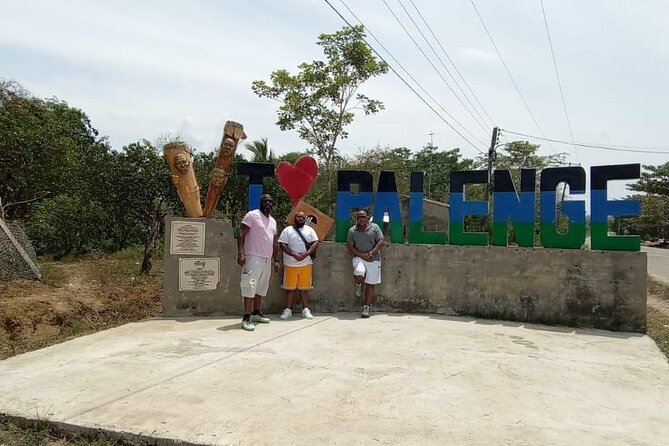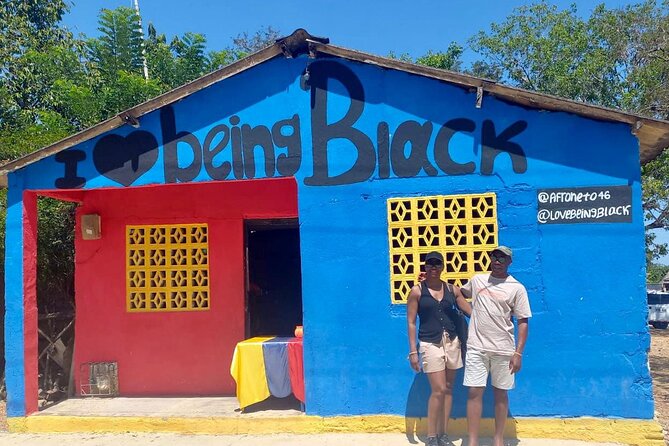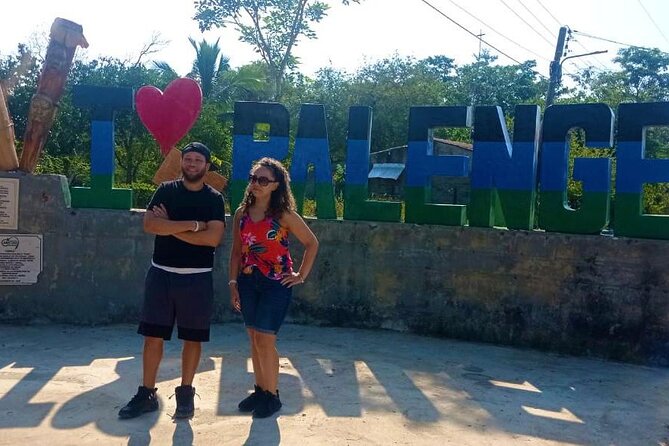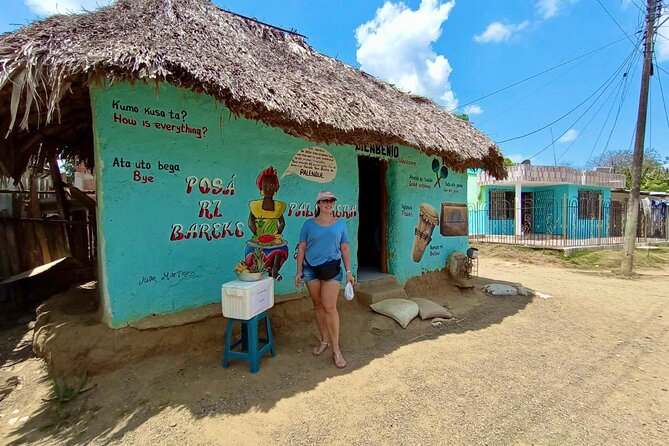Palenque, an Afro-Colombian community nestled in the heart of Colombia, stands as a testament to the resilience and cultural heritage of its African ancestors. Established in the early 17th century by former enslaved individuals, this vibrant settlement has preserved its unique traditions, blending African, Indigenous, and Spanish influences into a distinct identity. From its captivating architecture to its rich culinary and musical traditions, Palenque’s story is one of triumph, showcasing the enduring spirit of the Afro-Colombian population. Dive deeper into this remarkable community and uncover the intricate tapestry that weaves together Palenque’s past and present.
About Your Stay

- Palenque was established in the early 17th century by formerly enslaved Africans who sought refuge from Spanish colonial forces.
- The town’s architecture, music, and cuisine reflect the blending of African and indigenous cultures, showcasing its rich Afro-Colombian heritage.
- Palenque’s community has maintained strong cultural traditions, including artisanal crafts, oral storytelling, and spiritual practices passed down through generations.
- Traditional dishes like sancocho and arepas highlight the influence of African culinary practices combined with local ingredients.
- Music and dance styles in Palenque, such as bullerengue and champeta, are deeply rooted in the town’s African ancestral legacy.
History of Palenque
The history of Palenque dates back to the early 17th century when formerly enslaved Africans fled from nearby plantations and established this remarkable settlement.
It became a haven for those seeking freedom, as the rugged terrain and remote location provided natural defenses against Spanish colonial forces.
Over time, Palenque developed a distinct Afro-Colombian culture, blending African traditions with indigenous influences.
The town’s architecture, music, and culinary practices all reflect this rich heritage.
Today, Palenque stands as a testament to the resilience and determination of those who fought for their liberty, making it a must-visit destination for those interested in the African roots of Colombia’s history.
You can also read our reviews of more tours and experiences in Cartagena.
Exploring Palenque’s Architecture

As visitors explore Palenque, they’ll be struck by the town’s distinctive architectural style, which seamlessly blends African, Indigenous, and Spanish influences.
The architecture reflects the rich cultural heritage of the region, with features such:
- Colorful, ornate facades adorned with intricate carvings and patterns
- Balconies with wrought-iron railings and overhanging roofs
- Cobblestone streets lined with whitewashed buildings and quaint plazas
- Towering churches with bell towers and ornate religious iconography
- Courtyards and patios that offer respite from the tropical heat
This unique architectural tapestry tells the story of Palenque’s past, inviting visitors to enjoy the town’s vibrant cultural identity.
Palenque’s Cultural Heritage

Palenque’s vibrant cultural tapestry stems from its legacy as a sanctuary for enslaved Africans who fled Spanish colonial rule. These communities preserved their ancestral traditions, creating a unique Afro-Colombian identity. Traditional music, dance, and cuisine reflect the region’s diverse heritage. The community’s resilience and ingenuity are evident in their self-governing social structure and traditional dwellings.
| Traditional Dishes | Musical Instruments | Artisanal Crafts |
|---|---|---|
| Sancocho | Drums | Basket Weaving |
| Arepa | Maracas | Woodcarving |
| Mote de Queso | Tambores | Pottery |
Palenque’s cultural richness continues to captivate visitors, offering a window into the resilience and creativity of its Afro-Colombian community.
Palenque’s Afro-Colombian Community
Descendants of the Africans who fled Spanish colonial rule continue to thrive in Palenque, preserving their unique heritage and self-governing social structure.
The Afro-Colombian community in Palenque has a strong cultural identity, evident in their:
- Vibrant music and dance traditions
- Artisanal crafts, including pottery and weaving
- Culinary specialties like rice dishes and tropical fruits
- Oral storytelling and folk tales passed down through generations
- Spiritual practices and beliefs rooted in their African origins
This resilient community has faced challenges, but their commitment to maintaining their ancestral ways of life remains unwavering, making Palenque a unique cultural destination in Colombia.
Culinary Traditions of Palenque
The culinary traditions of Palenque reflect the rich cultural heritage of its Afro-Colombian community. Centuries of influences from Africa, the Caribbean, and indigenous peoples have shaped the town’s unique cuisine.
Traditional dishes like sancocho, a hearty stew made with root vegetables, plantains, and salted meat, are staples. Exotic tropical fruits like guava, mango, and papaya are used in juices, desserts, and even savory preparations.
Spices like achiote, cumin, and chili peppers add bold flavors. Seafood, especially fish and shrimp, are abundant.
The tasting of these traditional foods is a highlight of the Palenque African Roots tour, allowing visitors to enjoy the vibrant culinary culture of this historic Afro-Colombian community.
Music and Dance in Palenque

Music and dance are integral to the cultural heritage of Palenque. Residents take great pride in their African-influenced musical traditions, which include rhythmic drumming and soulful chants.
Key music styles include:
- Bullerengue, a lively call-and-response genre
- Champeta, a vibrant dance music blending African and Caribbean influences
- Cumbia, the iconic Colombian dance with African, indigenous, and Spanish roots
Palenque’s famous dance troupes, such as Palenque Dancehall, captivate audiences with their energetic performances, showcasing the community’s rich cultural identity.
These artistic expressions serve as a powerful reminder of Palenque’s resilient African legacy and its enduring influence on Colombian culture.
Palenque’s Natural Surroundings
Nestled along the lush, verdant banks of the Magdalena River, Palenque’s natural surroundings evoke a captivating blend of tranquility and vibrant diversity.
Towering palm trees sway gently in the breeze, casting dappled shadows on the winding pathways that meander through the town. Verdant forests teeming with exotic flora and fauna provide a lush backdrop to the charming colonial architecture.
The nearby beaches with their golden sands and crashing waves offer a serene respite, while the nearby hills and mountains provide opportunities for hiking and exploring the region’s stunning natural beauty.
Palenque’s natural setting is a true feast for the senses, inviting visitors to enjoy the beauty and wonder of this remarkable place.
Practical Tips for Visiting Palenque
Typically, visitors to Palenque should pack light, comfortable clothing suited for the warm, tropical climate.
It’s advisable to bring the following:
- Lightweight, breathable fabrics
- Comfortable walking shoes
- Sunscreen and a hat to protect against the sun
- Insect repellent, as mosquitoes can be prevalent
- A light rain jacket or umbrella, as brief showers are common
Visitors should also be prepared for the uneven terrain and steep steps found throughout the archaeological site.
Staying hydrated and pacing oneself are key to making the most of a Palenque visit.
With some basic preparation, travelers can fully enjoy the rich history and vibrant culture of this remarkable destination.
Questions About Your Stay
Can I Bring My Own Food and Drinks on the Tour?
The tour allows participants to bring their own food and drinks, but bottled water and a typical drink tasting are included in the tour price. Bringing outside food and drinks is permitted, though the tour provides a typical lunch as well.
What Is the Dress Code for the Tour?
There is no specific dress code mentioned for the tour. Participants should wear comfortable, weather-appropriate clothing and closed-toe shoes. Bringing a hat, sunscreen, and light jacket is also recommended to enjoy the outdoor activities.
Are There Any Age Restrictions for the Tour?
The tour has no age restrictions. Infants must sit on laps, and most travelers can participate. There are no specific age limits mentioned in the tour overview.
Can I Purchase Additional Souvenirs During the Tour?
Yes, travelers can purchase additional souvenirs during the tour. The tour includes a guided visit to the town, where participants can browse and buy local artisanal crafts and products at their own expense.
What Is the Cancellation Policy for the Tour?
The tour has a free cancellation policy up to 24 hours before the experience starts. Travelers can reserve their spot now and pay later for this tour.
Final Verdict On This Stay
Palenque’s vibrant culture is a testament to the resilience and creativity of the Afro-Colombian community. Blending African, Indigenous, and Spanish influences, the town’s music, dance, and cuisine reflect its rich heritage. Visitors can enjoy Palenque’s unique identity and explore its well-preserved architecture and natural surroundings, gaining a deeper understanding of this remarkable Afro-Colombian enclave.
More Tour Reviews in Cartagena
Not for you? Here's more nearby things to do in Cartagena we have reviewed
- Tour of Cholón Island Rosario Islands
- Cartagena in Times of War
- Cartagena: Roman Forum Entry Ticket
- Cartagena : Roman Theatre Museum Entry Ticket
- Cartagena: Panoramic Lift & Conception Castle Ticket
- 25 Best Tours In Cartagena
- 21 Best Guided Tours In Cartagena
- 3 Best National Park Tours In Cartagena
- 12 Best Shore Excursions In Cartagena
- 16 Best Shopping Tours In Cartagena
- 25 Best Drinking Tours In Cartagena
- Ecoruta Volcano of Totumo and Experience in the Mangroves
